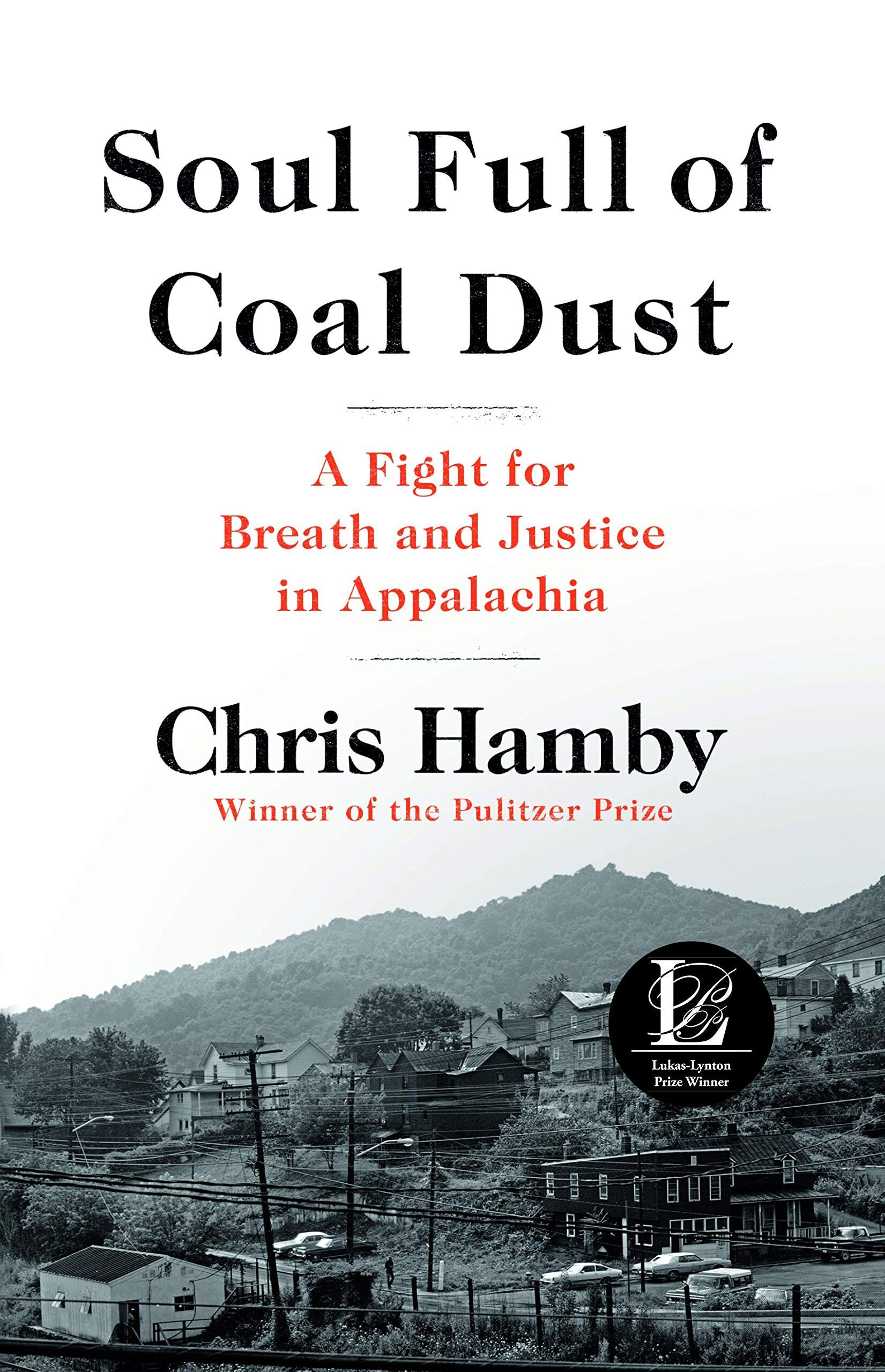An Affront to Justice: On Chris Hamby’s “Soul Full of Coal Dust”
Chris Hamby | Soul Full of Coal Dust: A Fight for Breath and Justice in Appalachia | Little, Brown and Company | August 2020 | 448 Pages
On May 5th, 2016 in West Virginia, Donald Trump rallied voters with the pantomime of a coal miner. He put on a white hardhat, puckered his lips, and pretended to shovel. “The miners,” he whooped, “are going to start to work again, believe me! They are going to be proud again to be miners.” The crowd cheered and panted and fanned their signs: “Trump Digs Coal.” “Make America Great Again.”
Four years later, Trump’s presidential reelection campaign makes scarce mention of coal miners. Whatever happened to these communities who earned so much fanfare just an election ago? While there’s less reporting above-the-fold, these coalfields remain a buzzing center of political activity. During the last few years, Kentucky miners have blocked railroads to demand back pay, and Appalachian coal bankruptcies have rocked state politics.
But the bigger story is what doesn’t make the news: the never-ending scourge of black lung disease that has continued to afflict miners, forty years after they first rebelled and demanded a fix. According to journalist Chris Hamby, in his new book Soul Full of Coal Dust, health conditions in these coal communities have only gotten worse, and the bureaucratic processes to make amends remain as unwieldy as ever.
Back in 2011, when Hamby first ventured into Appalachian coalfields, it was under the worst circumstances. He was a young cub reporter from D.C. sent to cover these working-class mine towns for a professional class of urban readers. “I was being drawn deeper into a world in which I had considered myself merely a passing visitor,” he writes. Over the years, those conditions have produced so much second-rate reporting that locals have come to expect it and shrug it off as snobbery and fake news. In 2016, the parachute news features, and elegies by venture capitalists, broadcast so many hurtful stereotypes that local Elizabeth Catte wrote an entire book to counter them, What You’re Getting Wrong About Appalachia.
Hamby begins Soul Full of Coal Dust by “marveling” at the industrial sites and the “compelling” people. But what redeems him from the most common pitfalls and mistakes is his persistence. He stays. He learns. He spends eight years with the men and women in his book, and he takes care to understand their everyday worries. To earn some goodwill, he confesses his misconceptions. He admits that he once believed black lung disease was a bygone problem (and we should welcome that honesty). The truth is, wherever there’s mining, there’s coal dust, and prolonged inhalation can cause a lung disease for which there is no known cure. Pneumoconiosis (the medical term) remains such a torment in coal country that just this year, the United Mine Workers of America issued a warning that pre-existing conditions and respiratory illness put miners at elevated risk of COVID-19.
Amid the coronavirus pandemic, there’s no way to read Hamby’s book without recognizing its damning assessment of the American proclivity to put economic profit over human health and wellbeing. Soul Full of Coal Dust is about the lived experience of the disease itself—the coughs and breathing tests, the chest masses and biopsies, the insurance paperwork and adjustments, the committee hearings and courtrooms. One central theme is what literature professor Rob Nixon calls “slow violence”: the accretive impacts that build up over the years, sometimes imperceptibly, until it breaks down the environment and the body.
What’s timely about Hamby’s reporting in the book is its reminder that legislative fixes to the social wreckage of coal mining have mostly failed to live up to the scale of the problem. The capricious health effects of black lung disease, entirely preventable, were supposed to have been resolved after the passage of the Federal Coal Mine Health and Safety Act in 1969. But here we are, a half-century later, covering the persistent swindle of rank and file miners out safe work conditions, proper health care, and compensation for their plight.
By introducing us to a number of ordinary people—John Cline, Gary Fox, Ralph Manning, Debbie Wills—Hamby provides several vantage points in this life and death struggle. Up against mine bosses, coal companies, legal teams, and government bureaucracies, coal communities persist in extraordinary ways. They view themselves as simply trying “to be of use.” There is no ego in their work. These modest people have no platforms, no Twitter followers, and no book deals. They prefer “to be the face of nothing but the catalysts of countless things,” writes Hamby, with an “itch to build” a just society through thankless work. “We reporters tend to be a cynical bunch,” he concludes, but “people possess an enormous capacity for empathy, generosity, and self sacrifice in the interest in the commonweal.”
The ongoing struggle of these miners to protect themselves from the worst excesses of the coal industry offers a warning for us all. In the crossfire of the pandemic and the climate crisis, coal miners have become the world’s canaries. As they continue to lock horns with Big Coal, they’ve learned some chilling truths: there are no apolitical processes, no easy fixes. There are only hard-fought gains. But victories will fall apart with neglect. Progress rolled back. Justice affronted.
But on top of it all, this book is a meditation on human resilience. Today, as the coal industry bottoms out, these communities are suffering more than ever from corporate abuse and neglect. But they refuse to go gently into the good night. They’re fighting for friends and neighbors and complete strangers. They’ve taken their message from kitchen tables to the halls of Congress. “Black Lung Kills.” This is a political movement. Now, more than ever, there’s much to learn from these people and communities—wisdom to gain and solidarity to build.

